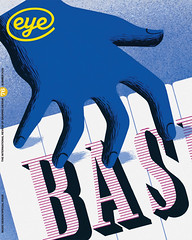Summer 2010
Cartoon knowledge
Backing into Forward: A Memoir By Jules Feiffer
Doubleday, USD30, Reviewed by Steven HellerI have known Jules Feiffer, the cartoonist, playwright, screenwriter and novelist, for 25 years. So it came as quite a shock when I read in his splendid 400-plus-page memoir, that his cousin was Roy Cohn, the legal counsel and chief inquisitor for the notorious Red-baiter, Senator Joseph McCarthy. How could that fact not have come up in conversations, especially since Feiffer knew my fascination with McCarthyism?
That revelation is one of the things that makes this book a real page-turner. Combined with many other insights and confessions it gives those of us who know him, those who just know his work, and those who have never sampled his brilliance before, an inspiring portrait of one of the most important satirists of the second half of the twentieth century.
Memoirs can sometimes be an overgrown jungle, forcing a reader to hack through the heavy undergrowth of chronological recollections. Feiffer’s book, though logically and rhythmically arranged, is not doggedly tied to a timeline. Along the way, we learn that much of his insightful humour and social consciousness was formed by complicated relationships with his domineering mother, Rhoda, and his Stalinist sister, Mimi; and friendships with the likes of director Mike Nichols (who directed Feiffer’s coming-of-age film Carnal Knowledge), actor / director Alan Arkin (who directed his first politically charged play Little Murders), and a slew of other New York intellectuals and artists.
The memoir works on four levels. The first is the spewing of pent-up inter-family resentments. Here Feiffer’s anger is cut with humour and pathos in a voice that accentuates the pain while accepting the inevitability of where it all led.
The second is a professional biography that examines the evolution of the Feiffer style and methodology, and his passion for comics. He also makes clear the risk he took in the development of his brand of psychoanalytic, self-deprecating humour that was unique in the 1950s.
The third level is how politics became an over-arching concern (which makes the Roy Cohn connection even more tragically absurd considering Feiffer’s left-wing stance).
Then the fourth – and the part I found the most moving, given the tone of his 1960s-era cartoons (which professed a kind of fear and hatred of women) – was the utter love he has for his wife and children.
What a great memoir does is reveal personal or professional traits that contribute to a better understanding of why the reader cares about the memoirist in the first place. I used to think that Feiffer’s cartoons – and later his plays – echoed my own life, or at least some neurotic parts of it. This book causes one to reflect: ‘Yes, this is indeed why I have admired Feiffer’s work for much of my life – and continue to do so.’
First published in Eye no. 76 vol. 19 2010
Eye is the world’s most beautiful and collectable graphic design journal, published quarterly for professional designers, students and anyone interested in critical, informed writing about graphic design and visual culture. It is available from all good design bookshops and online at the Eye shop, where you can buy subscriptions and single issues.

